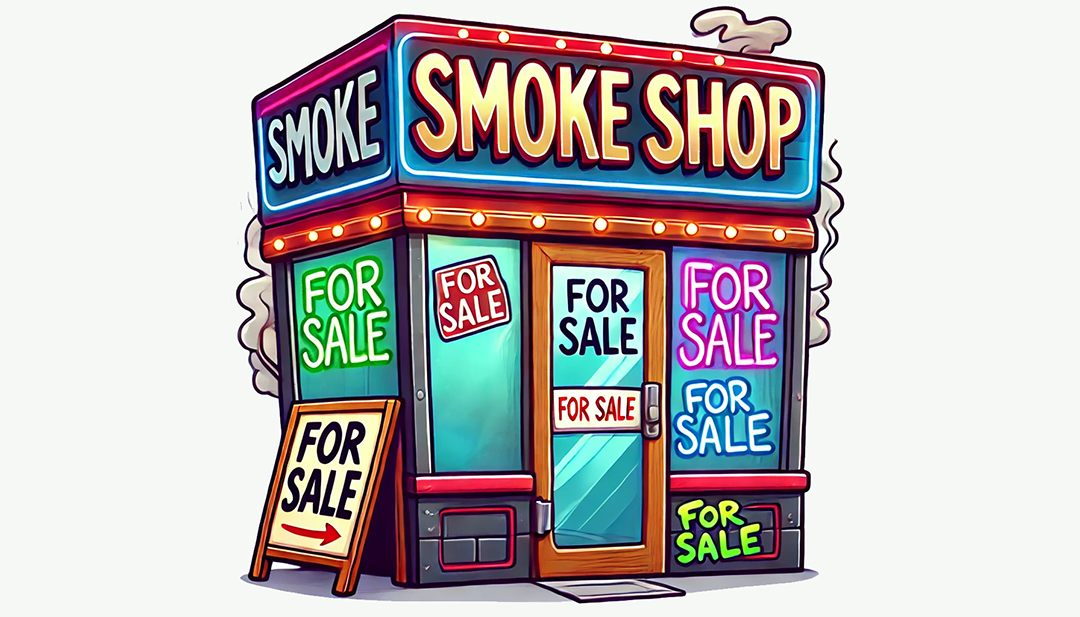Location and Accessibility: Strategic Considerations for Your Smoke Shop
Finding a strategic location is vital for the success of any retail business, especially a smoke shop. High-traffic areas typically offer the most significant potential for footfall, which is crucial for retail companies that thrive on impulse buys and regular customer visits. It’s essential to consider the volume of traffic and the accessibility of the location. Is your potential shop easy to drive to, and does it have ample parking? These factors significantly enhance customer convenience and will sway their decision to come to your store over others.
Visibility is another critical factor. Your shop needs to be easily seen by passersby; therefore, prominent signage and a visible location from the road can significantly improve your business’s exposure. Moreover, ensuring that your shop is wheelchair accessible meets local legal requirements and makes your business welcoming to all customers, thereby widening your potential market.
High Traffic Areas
When considering where to establish your smoke shop, look for areas that already draw many people. Shopping districts and areas with high residential density are ideal because potential customers are already nearby for other errands or activities, making them more likely to stop by your shop. Many people often search for “smoke shops within 1 mile” or “smoke shops within 5 miles,” so being in a densely populated area is crucial to capture these local searches and drive foot traffic.
Proximity to large retailers like
Walmart can also indicate sufficient local population density and economic activity to support a smoke shop. However, while high-population areas are advantageous, assessing the competition is crucial. An area saturated with smoke shops might pose significant challenges unless you can differentiate your business effectively. Conversely, being the first or one of the few can provide a competitive advantage. However, be wary of areas with deficient populations (such as towns with fewer than 5,000 residents), as the market size may be too small to sustain a profitable business.
Ultimately, your chosen location should balance visibility, accessibility, and competitive presence to maximize your smoke shop’s potential. This strategic decision will affect your initial foot traffic and play a crucial role in building a loyal customer base that relies on convenience and consistency.
To Buy or To Lease?
When scouting locations for your smoke shop, the condition of the premises plays a crucial role in shaping your startup costs. Opting for a full buildout allows for complete customization, aligning every corner of your shop with your envisioned aesthetic and functional needs. However, this approach generally requires a more significant upfront investment, so budgeting carefully is vital to accommodate these expenses.
On the other hand, a move-in-ready location can significantly reduce your initial financial outlay. While this might seem advantageous, especially for an entrepreneur eager to launch quickly, it often comes with less opportunity for customization. Additionally, premises ready for immediate occupation may carry higher rental costs than those requiring more extensive renovations. It’s essential to weigh the immediate cost savings against the potential for higher ongoing expenses and the loss of personalized touches.
Sometimes, an opportunity might arise to purchase an existing smoke shop.

Such an opportunity can be appealing as it may include store fixtures and inventory, potentially saving you time and money. However, buying an existing business should not be taken lightly. Investigate why the shop is on the market—is it due to poor management, location issues, or something more systemic that could pose challenges for you as well? If the current owners are selling due to retirement or relocation, this could be a golden opportunity to take over a successful venture with a proven track record.
Deciding whether to buy an existing shop or start from scratch involves carefully considering the financial implications and the business’s health. Use your judgment to determine if taking over an existing shop aligns with your goals or if building a new shop from the ground up would better serve your vision for the business. This decision will significantly impact your approach to the smoke shop market and your potential for long-term success.
Buying into a Smoke Shop Franchise
When considering starting your smoke shop, one option is to buy into a franchise. This route has several advantages that make the startup process smoother and potentially more successful.
Structured Operations:
Franchises usually have well-documented operations, processes, and procedures. This structure provides a solid foundation for starting a new business, significantly reducing its trial and error. You’ll have clear guidelines on managing the shop effectively from day one, which can help maintain consistency in service and customer experience.
Training and Support:
Most franchisors provide comprehensive training to new franchisees, covering everything from day-to-day operations to customer service and financial management. This training ensures you are well-prepared to run your shop according to the franchise’s established standards.
Brand Recognition and Marketing:
Buying into a franchise often means benefiting from instant brand recognition, which can take years to build from scratch. This recognition can bring in customers who are already loyal to the brand, thereby driving sales from the outset. Additionally, franchises usually have established marketing strategies and can offer discounted advertising opportunities through collective marketing funds, further enhancing your visibility in the market.
Supplier and Industry Connections:
Franchises typically have established relationships with suppliers, which can ensure that you get competitive prices and reliable deliveries. These relationships can be crucial for maintaining inventory and offering products that meet quality standards.
Ongoing Support:
Good franchisors provide continuing support and advice, helping you navigate challenges as they arise. This support can be invaluable in adapting to changes in the market or overcoming operational challenges.
Revenue Sharing:
It’s important to note that buying into a franchise involves revenue sharing, where you will pay a percentage of your shop’s revenue will be paid to the franchisor. Depending on the franchise agreement, these fees may range from 5% to 20% of your revenue. While this can seem like a significant cost, the benefits you will gain by franchising often justify the expense.
Opting for a franchise can be prudent for entrepreneurs who prefer a model with support and established systems over starting entirely from scratch. However, it’s crucial to thoroughly research and consider the stipulations of the franchise agreement to be positive that it aligns with your business goals and financial capabilities.
Licensing and Compliance: Essential Steps for Your Smoke Shop
After establishing your business with the state, obtaining the licenses for your smoke shop becomes the next critical step. Licensing requirements vary widely, not just from state to state, but may also differ at county and city levels, reflecting the localized regulatory environment. The licensing process may be straightforward in some areas, requiring minimal paperwork. However, the specific nature of your product offerings significantly influences the type of licensing required.
For shops that plan to sell tobacco products, many states require a specific tobacco license. A tobacco license is separate from a standard merchant’s license, which is typically needed to operate any retail business. If your inventory includes hemp-derived products like
THCA,
Delta 9, or
CBD, be prepared to navigate additional regulatory layers. Some states mandate registration or a specialized hemp license to sell these items. These specialized licenses can vary in cost, and applying for them often involves a detailed application process to ensure compliance with state regulations on hemp and CBD products.
Taxes and Annual Filings
Beyond product-specific licensing, you must also establish accounts for tax filing purposes within your state. Staying current with federal and state business filings is the best way to avoid costly penalties and ensure your business remains compliant with the laws put in place by local and national authorities. Staying compliant includes regular updates and renewals of licenses as regulatory landscapes evolve, particularly in the fast-changing world of smoke and hemp products.
Understanding and navigating the licensing requirements is more than a formality—it’s a foundation for building a reputable business that customers trust. Ensuring that all legal and tax-related aspects of your smoke shop are in order can prevent future legal complications and contribute to the smooth operation of your business. Understanding and complying with these requirements thoroughly safeguards your investment and builds your reputation as a responsible and law-abiding business owner.
Deciding to Operate a Hybrid Smoke and Vape Shop
Diversification is critical to capturing and maintaining a broad customer base in today’s retail landscape. Specializing exclusively in one product category, such as only offering tobacco or solely focusing on vape products, might limit your shop’s appeal and revenue potential. The trend has shifted towards hybrid models where smoke shops incorporate vaping products and accessories and vice versa. This approach broadens your market and makes your store a convenient one-stop shop for various consumer needs.
Integrating both smoking and vaping products can significantly enhance your shop’s appeal. Items such as disposable vapes, vape juices, and various hemp products, including CBD, are increasingly popular and attract a diverse clientele. Moreover, expanding beyond traditional smoke and vape products to include items like sexual enhancement products, sex toys, garments, and fragrances can further diversify your offerings and appeal to a broader demographic.
While adding vaping products to your inventory might necessitate additional licensing, the potential increase in customer traffic and sales can make the investment worthwhile.
This strategy meets more of your customers’ needs under one roof and positions your shop as a versatile and comprehensive source of lifestyle products. Offering a broadened product range can help stabilize your revenue by appealing to different customer segments, each with their preferences and buying habits.
Ultimately, operating a hybrid smoke and vape shop allows you to cater to the preferences of a broader demographic, boosting customer satisfaction and repeat business. This business model adapts to evolving market trends and consumer behaviors, ensuring your shop remains appealing and relevant in a rapidly changing industry.
Smoke Shop vs. Dispensary: Understanding the Differences
When deciding whether to open a smoke shop or a dispensary, understanding the differences in operations, customer bases, and legal considerations is crucial. While both stores may appear similar, they cater to distinctly different markets with specific needs and regulations.
Operations and Product Offerings:
Dispensaries and smoke shops can sometimes overlap in their product offerings, but their core focuses are different. Dispensaries primarily cater to medical or recreational cannabis users and are more likely to offer a range of cannabis-related products, including buds, edibles, tinctures, and more. In contrast, smoke shops typically provide tobacco products, smoking accessories, and, increasingly, vape products. Hybrid models, like Remedy Center, effectively combine elements of both, offering a broad range of accessories and vape products while specializing in cannabis-derived items.
Expertise and Product Knowledge:
Dispensaries generally employ staff with extensive knowledge of cannabis and its various effects, benefits, and uses, which is a significant differentiator from smoke shops. This expertise is crucial as it helps in educating customers, particularly those using cannabis for health-related reasons. Smoke shop employees may be knowledgeable about their products but are less likely to have specialized training in cannabis unless they are part of a hybrid model.
Quality of Products:
Due to their focus and regulatory environment, dispensaries often have access to higher-end cannabis products that have undergone more stringent testing and compliance measures. Greater accessibility can lead to the perception and usually the reality that dispensaries offer superior-quality cannabis products compared to those found in smoke shops or gas stations, which might carry a smaller and less regulated selection of hemp-derived products.
Legal Considerations:
The regulatory landscape for dispensaries is significantly more complex due to the nature of cannabis as a controlled substance at the federal level, despite state-level legalizations and the federal legalization of hemp. The added complexity means dispensaries must adhere to strict state and local regulations regarding licensing, product safety, advertising, and even how products are displayed and sold. Smoke shops, while regulated, generally face less stringent legal requirements unless they deal extensively in CBD or hemp products; in this case, they must ensure compliance with federal and state hemp regulations.
Understanding these distinctions is essential for any beginner looking to enter either market. Choosing between opening a smoke shop or a dispensary—or integrating aspects of both into a hybrid model—depends on your location’s business goals, expertise, and legal and market environment. Tailoring your business to your chosen market’s specific needs and regulations can help you better meet customer expectations and navigate the industry’s complexities.
Choosing Your Logo and Signage: Making a Lasting Impression

Your logo will often be the first thing a potential customer associates with your business, so making an impact is crucial. It should be easy to read and recognize from a distance. Avoid using overly thin or cursive fonts, which can be challenging to read, especially when moving past quickly or from afar. A unique and original logo will set you apart from competitors and establishes your brand’s identity. Consider the message you want to convey with your logo and how it aligns with the overall ethos of your smoke shop.
Investing in Quality Signage:
While the cost of professional signage can be considerable, it is a critical investment in your business’s public face. Opting for a temporary solution like a banner might save money initially, but it often sends a message that the company might not be permanent or serious. On the other hand, a well-lit, professionally installed sign signals to customers that you are a credible, established business committed to quality.
Your logo and store signage play vital roles in branding and can significantly influence a customer’s perception of your shop. Quality signs enhance visibility and contribute to the customer’s sense of security and professionalism, encouraging them to step inside. Remember, the external appearance of your shop sets the tone for customers’ expectations about the quality and the type of products they presume to find inside. Ensuring that your visual branding elements have well-thought-out designs and is well-executed can make a substantial difference in how your business is perceived and can ultimately influence its success.
Choosing Store Fixtures and a Point of Sale (POS) System
Selecting Store Fixtures:
When setting up to open your smoke shop,
choosing store fixtures is a matter of aesthetics and functionality. It’s easy to get overwhelmed with the various options in styles, colors, and materials available. It’s advisable to stick to a uniform theme throughout your store. Choosing fixtures with the same color and style can lend a professional appearance and create a seamless shopping experience for customers.
Mirrored cases and shelving make your store appear larger and more open, creating an optical illusion of depth that will make the space less cramped. Lighting is another critical aspect; well-lit display cases in a brightly illuminated room enhance product visibility, inviting customers to look closer at your merchandise. For high-value or fragile items, consider investing in locking display cases to secure them against theft and damage.
The design of your checkout area is equally important. It should include space for displaying last-minute impulse items—products that customers might not have come to buy but might decide to purchase after seeing them at the counter. This setup not only optimizes the use of space but also boosts sales.
Choosing a POS System
Selecting the right POS system is crucial for efficiently managing your smoke shop. The ideal POS system should fit your specific operational needs and include capabilities such as a robust loyalty rewards program to encourage repeat business. Choosing a POS system that accommodates the sale of high-risk items is common in smoke shops. Be transparent with your POS provider about the nature of your products to ensure compliance and avoid future complications.
High-Risk / High-Reward
Be aware that some POS system providers may place your business in a high-risk category depending on the items you sell, potentially leading to higher processing rates and more stringent reporting requirements. Despite these challenges, a reliable POS system is vital for tracking sales, managing inventory, and generating detailed reports that help you analyze and refine your business operations.
Investing time in selecting the right fixtures and POS system can significantly influence your smoke shop’s functionality, security, and aesthetic appeal, enhancing the customer experience and operational efficiency.
Square offers a CBD program for customers who wish to sell CBD
Products and Services: Strategizing for Success
Product Range and Inventory Management: To thrive in the competitive retail landscape of smoke shops, offering diverse products is crucial. However, wisely managing your inventory is equally important to avoid overstocking products that do not drive your bottom line. Initially, it’s advisable to start with smaller quantities and track which items sell well. Over time, you can adjust your inventory based on customer demand and sales trends. Modern logistics now make it relatively easy to replenish stock quickly, especially if you have access to a nearby cash-and-carry wholesaler where you can pick up products the same day if needed.
Consider Delivery Services:

Implementing delivery services for your smoke shop can significantly enhance your business reach, especially if there is substantial local demand. However, this service has additional considerations, such as increased insurance rates and potentially higher driver wages. It’s essential to analyze whether the potential increase in sales from offering delivery will offset these additional costs. Effective delivery services attract customers who value convenience, potentially increasing customer loyalty and boosting sales.
Drive-Thru Services:
Adding a drive-thru can give your business a competitive edge by offering unparalleled convenience to your customers. This service allows customers to make purchases without leaving their car, which can be especially appealing in inclement weather or for quick stops. The drive-thru model has been successful in various retail sectors and could be particularly effective for smoke shops located in areas with suitable infrastructure and sufficient space.
By carefully considering these aspects of product offerings and services, you can create a robust business model that not only meets the diverse needs of your customers but also enhances operational efficiency and market competitiveness.
Employment and Management: Building a Sustainable Team
Balancing Personal Involvement and Staffing Needs: While dedicating yourself full-time to your smoke shop is an admirable goal, it’s important to recognize early on that continuously working seven days a week is unsustainable in the long term. Hiring at least one sales associate is essential to maintain your well-being and the store’s performance. This person can cover your days off and help manage customer flow during busy hours, ensuring the business runs smoothly even in your absence.
Expanding Your Team:
As your business grows, you may find that the day-to-day demands of running a smoke shop require more than you can manage alone or with occasional help. At this point, considering the promotion of a current employee or
hiring a new manager might be necessary. This role would focus on handling a significant portion of administrative tasks, such as inventory management, employee scheduling, and perhaps even some aspects of financial management.
Training and Communication:
The key to successful delegation and management lies in comprehensive training and open, ongoing communication. Ensure that your staff, especially those in managerial positions, are well-trained in in-store operations, customer service, and compliance with relevant laws and regulations. It’s crucial that they fully understand your vision for the business to ensure that any decisions they make align with your goals
.
Maintaining Your Vision:
Regular meetings and consistent communication channels help keep all team members up to speed. These interactions are not just about oversight but also provide an opportunity to receive feedback from your team, which can be invaluable for spotting issues before they become problems and sparking conversations with vital insights that can benefit the business.
By carefully managing your involvement and developing a capable team, you can ensure that your smoke shop thrives in the long term. A reliable team will keep your business vision intact while fostering an environment supporting growth and adaptation.
Legal Scrutiny and Managing Risks

Navigating Legal Challenges:
Smoke shops, particularly those selling hemp-derived THC products, often come under scrutiny from local authorities. For instance, even well-established shops like
Remedy Center in Jasper, IN, experienced a significant setback when raided on June 28th, 2023. During the raid, all hemp-derived THC products were confiscated by the local police, posing a significant financial hurdle. Incidents like this highlight the necessity of navigating the legal landscape surrounding smoke shops in your region.
Staying Compliant:
The risk of legal action, such as a raid, can have devastating consequences for a smoke shop, potentially even forcing closure. Staying well-informed about the legality of the products you stock is crucial. Maintaining awareness means regular consultation with legal experts, staying updated on local and federal regulations and ensuring all products sold are fully compliant with current laws.
Commitment to Evolution and Excellence
Leveraging Experience and Competition:
The insights shared here are distilled from years of experience operating multiple smoke shop hybrid stores, observing successful practices and common pitfalls within the industry. Watching your competition closely can provide valuable lessons on what works and what doesn’t, allowing you to adapt and refine your strategies accordingly.
Adapting to Industry Dynamics:
The smoke shop industry is a fast-paced environment driven by rapid changes and trends. Success in this field requires a willingness to evolve continuously. New competitors may emerge at any time, potentially drawing away customers. Staying competitive means being proactive about market trends, enhancing customer experience, and always looking for ways to innovate.
Opening and running a smoke shop involves much more than managing day-to-day sales. It requires a deep understanding of legal issues, a solid commitment to staying on top of industry trends, and a flexible approach to business management. By following these principles, you can increase your chances of establishing a thriving, resilient smoke shop that stands the test of time and thrives in a competitive market.
Additional FAQ for Opening and Managing a Smoke Shop
-
How do I determine the right pricing strategy for my smoke shop products?
Setting competitive and profitable pricing involves understanding your cost of goods, the pricing of local competitors, and customers’ perceived value of your products. Consider adopting tiered pricing for different quality levels of products to cater to potential customers with varying needs and budgets.
-
Do new smoke shop owners face some of the same everyday challenges?
New owners often need help with cash flow management, regulatory compliance, finding reliable suppliers, and effectively marketing their business. Overcoming these challenges requires careful planning, ongoing education, and sometimes professional advice.
-
How can I enhance customer loyalty in my smoke shop?
Excellent customer service, loyalty programs that reward repeat customers, regular promotions, and a welcoming store atmosphere can enhance customer loyalty. Engaging with your community through events or social media can strengthen customer relationships.
-
Do I need a specialized insurance policy for my smoke shop?
Smoke shops typically require general liability, product, and commercial property insurance to shield you from potential legal and financial issues. Connecting with an insurance agent who has experience with retail and specialty shops is recommended to ensure you have adequate coverage.
-
How can I implement technology to improve my smoke shop’s operations?
Implementing a robust POS system in your store is just the start; consider utilizing an inventory management application, customer relationship management (CRM), and e-commerce platforms if you plan to sell online. These technologies can streamline operations, enhance the customer experience, and expand sales channels.
-
How should I expand my smoke shop into multiple locations?
Expanding to multiple locations involves thorough market research, a review of the financial health of your first shop, and a scalable business model. Standardizing operations and ensuring you can maintain quality across your locations is crucial.
-
How do environmental laws affect the operation of a smoke shop?
Environmental regulations impact how you dispose of waste products or manage recycling. Stay informed about local laws regarding environmental protection to ensure your business practices are compliant.
-
What is the best way to hire smoke shop employees?
Look for employees with retail experience and a good understanding of your products. Conduct thorough interviews, check references, and consider background checks to ensure trustworthiness and reliability. Training should also cover customer service, product knowledge, and compliance with tobacco and hemp sales laws.
-
How important is social media marketing for smoke shops?
Social media marketing will boost brand awareness, engage with potential customers, and showcase new products or special events. Apps like Instagram, Facebook, and Pinterest are especially effective for visual and promotional content that appeals to smoke shop clientele.
These additional FAQs address deeper aspects of running a smoke shop that prospective owners might consider after reading the primary guide, providing further insights into effectively managing and growing a smoke shop business.


 Such an opportunity can be appealing as it may include store fixtures and inventory, potentially saving you time and money. However, buying an existing business should not be taken lightly. Investigate why the shop is on the market—is it due to poor management, location issues, or something more systemic that could pose challenges for you as well? If the current owners are selling due to retirement or relocation, this could be a golden opportunity to take over a successful venture with a proven track record.
Deciding whether to buy an existing shop or start from scratch involves carefully considering the financial implications and the business’s health. Use your judgment to determine if taking over an existing shop aligns with your goals or if building a new shop from the ground up would better serve your vision for the business. This decision will significantly impact your approach to the smoke shop market and your potential for long-term success.
Such an opportunity can be appealing as it may include store fixtures and inventory, potentially saving you time and money. However, buying an existing business should not be taken lightly. Investigate why the shop is on the market—is it due to poor management, location issues, or something more systemic that could pose challenges for you as well? If the current owners are selling due to retirement or relocation, this could be a golden opportunity to take over a successful venture with a proven track record.
Deciding whether to buy an existing shop or start from scratch involves carefully considering the financial implications and the business’s health. Use your judgment to determine if taking over an existing shop aligns with your goals or if building a new shop from the ground up would better serve your vision for the business. This decision will significantly impact your approach to the smoke shop market and your potential for long-term success.

 Implementing delivery services for your smoke shop can significantly enhance your business reach, especially if there is substantial local demand. However, this service has additional considerations, such as increased insurance rates and potentially higher driver wages. It’s essential to analyze whether the potential increase in sales from offering delivery will offset these additional costs. Effective delivery services attract customers who value convenience, potentially increasing customer loyalty and boosting sales.
Implementing delivery services for your smoke shop can significantly enhance your business reach, especially if there is substantial local demand. However, this service has additional considerations, such as increased insurance rates and potentially higher driver wages. It’s essential to analyze whether the potential increase in sales from offering delivery will offset these additional costs. Effective delivery services attract customers who value convenience, potentially increasing customer loyalty and boosting sales.



